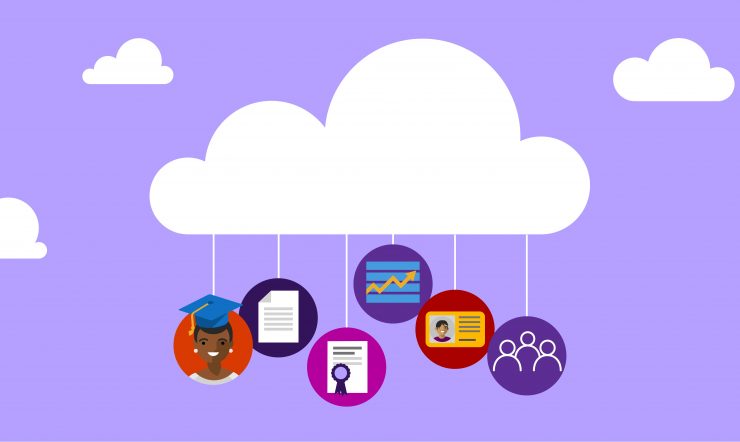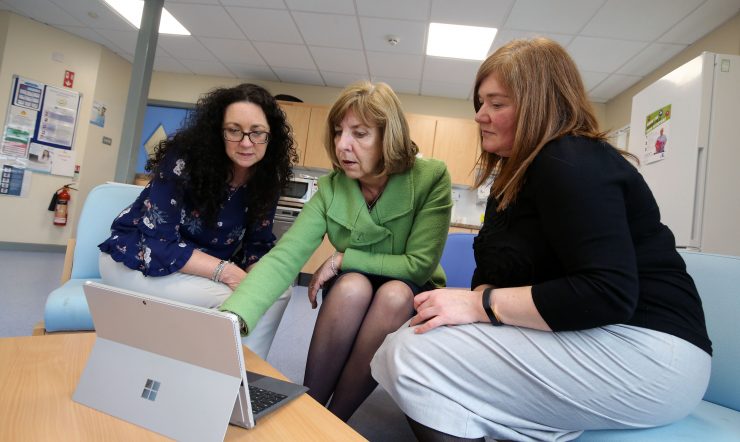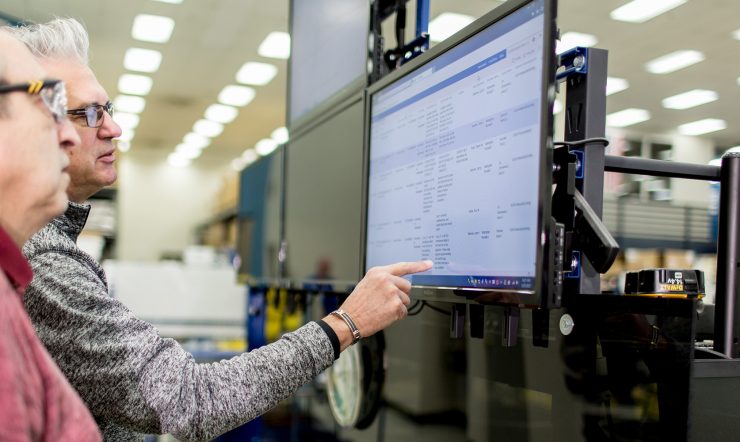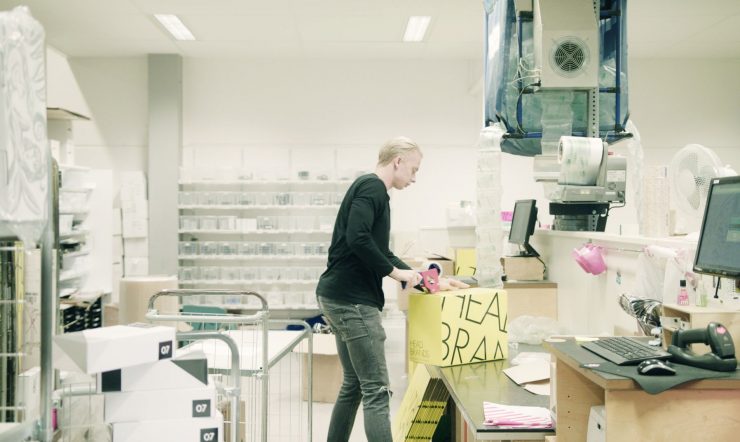NEWS RELEASE
Microsoft Research Reveals Digital Culture’s Key Role in Irish Organisations’ Competitiveness
Without a strong digital culture, introducing more technology reduces employee engagement
Microsoft Ireland’s research shows:
- Only 11% of Irish employees feel highly productive in their job and 14% feel highly engaged. While 90% of employees report low innovation in their organisation.
- Where there is a strong Digital Culture 99% of employees experience average to high productivity and 98% experience average to high innovation.
- Irish organisations with a strong Digital Culture have twice as many employees who feel productive, three times as many feel innovative, four times as many feel engaged, and five times as many feel empowered.
- Only 16.2% of Irish employees work in organisations with a strong company culture and 16.6% say they work in a strong Digital Culture.
- Only 16.2% of Irish employees use a high amount of technology in their job.
Dublin – 17th April 2018: Irish organisations who embrace digital culture will enjoy a significant competitive advantage, according to new research from Microsoft Ireland. The research reveals Irish organisations with a strong digital culture are poised to leapfrog the less well-equipped competition as 99% of their employees experience average to high productivity and 98% experience average to high innovation.
Microsoft conducted research into digital disconnect on over 20,476 employees across 21 EU countries. In Ireland, over 1,000 employees were interviewed across the 25-44 years of age range, with questions focused on the technology they used, as well as their attitudes about their jobs and performance. The research identified culture as the key ingredient for an organisation’s digital success.
Digital Culture is where an organisation encourages and supports technology use to get work done in the most effective way. A strong digital culture has training, access to information, manager encouragement of tech adoption, and has a clear strategic vision from leaders regarding technology’s transformative potential.
“One year ago, we said that organisations had two years to transform or risk losing out to competitors,” said Aisling Curtis, Commercial Director, Microsoft Ireland. “And one year on, that message has been strengthened with this latest research highlighting the need for significant action in Ireland when we consider that a massive 84% of Irish employees believe they work within a weak digital culture. To combat this, leaders need to be clear on whether their organisation has a set of guidelines for how technology should be used and whether their people have been brought along that journey.”
Disconnection in a Weak Digital Culture
The research found that poor digital culture creates disconnected employees who are disengaged from the organisation. Additionally, 93% of employees in Ireland have low to average productivity when there is a weak digital culture. Whereas where there is a strong digital culture, twice as many employees experience high productivity and three times as many employees experience high innovativeness.
Alarmingly, only 16.2% of Irish employees interviewed, claimed they use a high amount of technology in their job.
The impact of poorly planned digital culture on employees follows four common patterns:
- Distraction: Workers who are too distracted by a constant influx of messages and notifications to concentrate for sustained periods.
- Lack of training: Workers who aren’t properly trained to use the new technology effectively.
- No Support: Tech that isn’t adequately supported by the organisation, forcing workers to lose time because “the computers are down”.
- Technostress: Workers who suffer burnout because, with mobile devices and at-home-working, they feel tethered to the job around-the-clock.
Winning the War for Talent
For the first time, there are five generations working in organisations in Ireland, presenting challenges to leaders in terms of finding, engaging and managing talent. The research results also identified that Digital Culture can help win the war for talent as it helps engage and empower employees. Irish organisations with a strong digital culture are more likely to have:
- Twice as many employees who feel productive
- Four times as many employees who feel engaged
- Three times as many employees who feel innovative
- Five times as many employees who feel empowered
For organisations to cultivate and maintain a strong digital culture, they need to ensure that they have the most up to date technology which needs to be championed by their leadership team. Another crucial factor is access to IT support for employees, and a working environment where technology is introduced as a priority. In fact, nearly half (47%) of Irish employees feel highly empowered in a strong culture.























